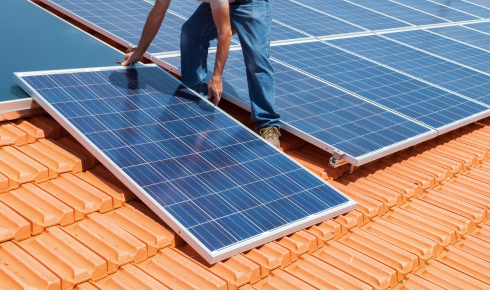The global energy landscape is rapidly evolving, and renewable sources are at the heart of this transformation. Among them, solar energy stands out as a sustainable, cost-effective, and eco-friendly alternative to conventional electricity. Whether for households, businesses, or large industries, investing in a solar power system has become one of the smartest choices for long-term savings and environmental responsibility.
Understanding Solar Energy in Today’s World
Solar power harnesses energy from the sun and converts it into electricity through photovoltaic (PV) panels. With abundant sunlight available across most parts of India, solar technology is practical and effective. It not only reduces dependence on fossil fuels but also lowers electricity bills significantly.
The government has been promoting solar adoption through incentives, subsidies, and net metering policies. As a result, more homeowners and businesses are exploring the potential of solar solutions. With a one-time investment, you can generate clean electricity for decades.
Types of Solar Power Systems
When deciding to go solar, it’s important to understand the different types of systems available:
- On-Grid System – Connected to the main electricity grid, it allows users to draw power when needed and send excess energy back to the grid for credits.
- Off-Grid System – Independent of the grid, it stores excess power in batteries. This option is best for remote areas with limited access to electricity.
- Hybrid System – A combination of on-grid and off-grid, it provides flexibility and ensures uninterrupted supply even during power cuts.
Each type has its advantages, and the choice depends on your energy needs, budget, and location.
Why Solar Rooftop Systems Are Popular
One of the most widely adopted forms of solar technology in urban and semi-urban areas is the solar rooftop system. Installed on residential, commercial, or industrial rooftops, these systems maximize available space while providing a reliable source of clean electricity.
Rooftop solar is gaining popularity because it requires minimal land use, offers long-term savings, and is relatively easy to maintain. For homeowners, rooftop panels reduce monthly electricity bills, while businesses benefit from lower operational costs and enhanced sustainability credentials.
Key Benefits of Solar Installations
Switching to solar brings multiple advantages that extend beyond financial savings:
- Cost-Effective Energy – After the initial setup, the cost of electricity generation is almost zero.
- Government Support – Subsidies and tax benefits make solar adoption more affordable.
- Environmentally Friendly – Solar energy reduces carbon emissions, supporting the fight against climate change.
- Low Maintenance – Solar panels generally require simple cleaning and occasional inspections.
- Energy Independence – Users become less dependent on fluctuating electricity tariffs and grid supply.
How to Choose the Right Solar Setup
Before installing a solar system, it’s essential to evaluate certain factors:
- Energy Requirements – Assess your average monthly energy usage to choose the correct system size.
- Roof Suitability – Check if your rooftop has adequate space, proper orientation, and sufficient sunlight exposure.
- Budget and Financing – Explore available subsidies, EMI options, and financing plans to reduce upfront costs.
- Quality of Components – Ensure panels, inverters, and batteries come from reputed manufacturers with warranties.
- Service and Maintenance – Partner with providers who offer reliable after-sales support.
The Future of Solar in India
India is making rapid progress in adopting renewable energy, with ambitious targets for solar capacity in the coming years. The falling cost of solar technology, along with supportive government initiatives, ensures that more households and businesses will turn to solar energy.
Urban centers, in particular, are seeing a rise in rooftop installations as people recognize the dual benefits of cost savings and sustainability. With solar technology becoming more advanced and accessible, the future of clean energy in India looks brighter than ever.
Conclusion
Investing in solar is not just a financial decision but also an environmental commitment. From large-scale farms to compact rooftop setups, solar energy is reshaping how individuals and businesses power their daily lives. With rising electricity costs and growing awareness about climate change, there has never been a better time to embrace solar.
By choosing the right system and working with a trusted provider, you can enjoy decades of clean, affordable, and reliable power while contributing to a greener planet.




